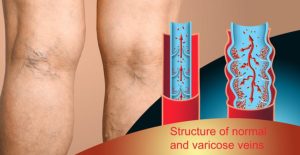 Varicose veins are only a symptom of vein disease. While they can be problematic, they are not the only bodily effect. If you have chronic insufficiency of the venous system, you may also experience leg ulcerations on the skin that are very hard to heal as well as discoloration of the skin around the ankles.
Varicose veins are only a symptom of vein disease. While they can be problematic, they are not the only bodily effect. If you have chronic insufficiency of the venous system, you may also experience leg ulcerations on the skin that are very hard to heal as well as discoloration of the skin around the ankles.
Those with CVI also often report feeing tightness in their calves, swelling, and itching as well as pain. These are all made worse with movement and feel a bit better when at rest.
Why does Chronic Venous Insufficiency Occur?
CVI is a condition that occurs when veins responsible for pumping blood back towards the heart are unable to do their job any longer due to deterioration and weakness. The blood instead becomes pooled uncomfortably within the veins forcing them to expand and wear down.
This medical condition most commonly occurs in the legs, as it these veins that must fight the hardest against the forces of gravity in order to pump blood upwards towards the heart. While chronic venous insufficiency in itself does not pose a serious threat, it can be extremely uncomfortable for any patient who experiences it and may also present signs that other associated conditions are present, associated conditions which can pose serious threats.
Causes
The causes of CVI are quite varied, and like other venous disorders, typically develop from a combination of both genetic and individual lifestyle factors. Those who are older or who have a family history of vein disease are more likely to develop CVI, and while it was once thought that women are more affected than men, recent research has shown that both men and women are equally susceptible. Factors that are within a patient’s control include obesity, smoking, lack of exercise or general inactivity, or working in a profession that requires long periods of sitting or standing. In addition, CVI can also develop because of injury to an area or as an associated condition to such disorders as high blood pressure or deep vein thrombosis, the latter of which is a very serious venous condition.
Prevention
The recommendations for preventing chronic venous insufficiency are nearly identical to the recommendations given for maintaining your vein health in general. This advice includes maintaining a healthy diet and body weight, remaining active and getting frequent exercise, quitting smoking if applicable, and protecting your legs from trauma or injury. If you travel frequently or work in a profession that limits your movement, try to work in as many breaks as you can to move around and get your circulation going.
If any of the above symptoms sound familiar to you or you feel that you may be at risk for developing CVI in the near future, especially if your family history or personal history indicates such risk, then please contact Dr. Zuzga at the West Florida Vein Center today to schedule a vein screening by calling (727) 712-3233. www.westfloridaveincenter.com.
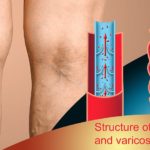
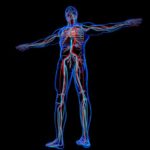
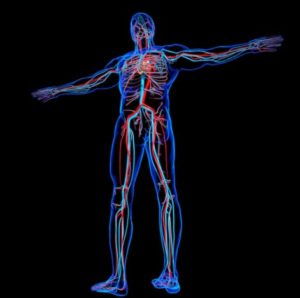 Below you will find a basic introduction to the vascular system.
Below you will find a basic introduction to the vascular system.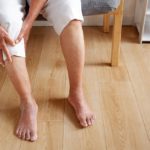
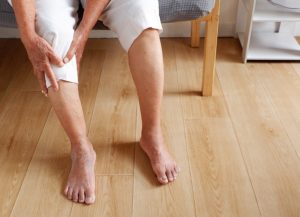 Varicose veins and leg pain do NOT have to be permanent!
Varicose veins and leg pain do NOT have to be permanent!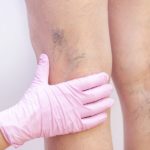
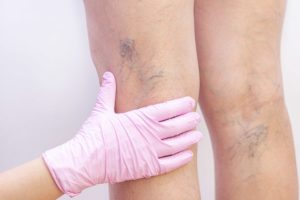 Varicose veins, especially in the advanced stages, can become very painful. Twisting, pooling, bulging, enlarged, swollen, and even ulcerated. They distract from daily life and detract from the quality of it.
Varicose veins, especially in the advanced stages, can become very painful. Twisting, pooling, bulging, enlarged, swollen, and even ulcerated. They distract from daily life and detract from the quality of it.
 Pain detracts from life. It can be incredibly difficult to care about much else when you are not feeling your best. Leg pain caused by varicose veins can range from mild to debilitating and hamper your ability to get through the day.
Pain detracts from life. It can be incredibly difficult to care about much else when you are not feeling your best. Leg pain caused by varicose veins can range from mild to debilitating and hamper your ability to get through the day.
 Wearing certain clothing styles has been linked directly to aggravation of varicose and spider veins.
Wearing certain clothing styles has been linked directly to aggravation of varicose and spider veins. 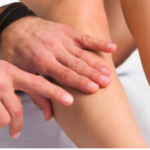
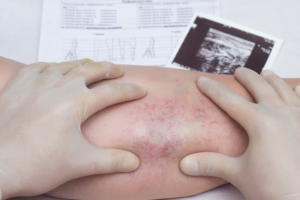 Varicose and spider veins are unsightly and sometimes embarrassing. It’s easy to consider them just a visual issue and dismiss them. The problem is that they are a medial issue that can become worse over time. The time to stop them is now.
Varicose and spider veins are unsightly and sometimes embarrassing. It’s easy to consider them just a visual issue and dismiss them. The problem is that they are a medial issue that can become worse over time. The time to stop them is now.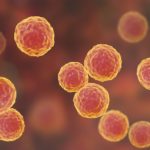
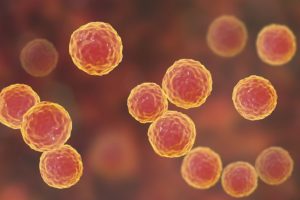 Infective Endocarditis is an infection of the endocardium, by way of bacteria or fungus. It often leads to the onset of symptoms such as fever, anemia, heart murmurs, petechiae, and embolic phenomena.
Infective Endocarditis is an infection of the endocardium, by way of bacteria or fungus. It often leads to the onset of symptoms such as fever, anemia, heart murmurs, petechiae, and embolic phenomena.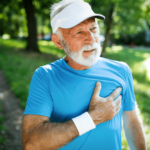
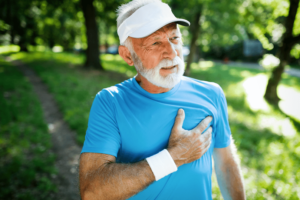 Anxiety disorders affect 40 million adults in the USA.
Anxiety disorders affect 40 million adults in the USA. 
 Pelvic Congestion Syndrome is a chronic medical condition that affects nearly 1/3 of all women at some point during their lifetime.
Pelvic Congestion Syndrome is a chronic medical condition that affects nearly 1/3 of all women at some point during their lifetime.